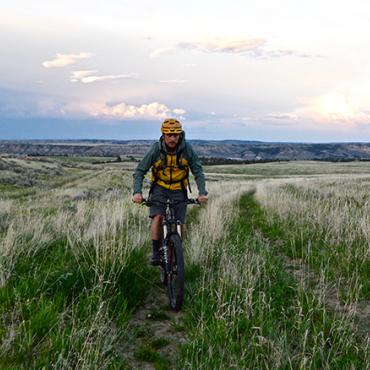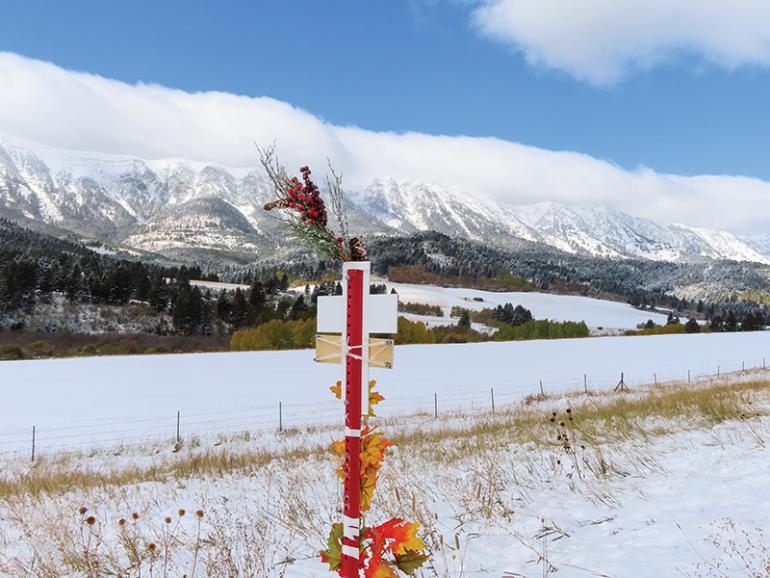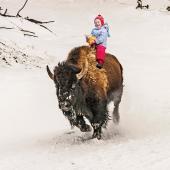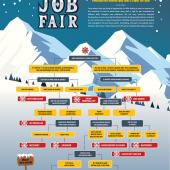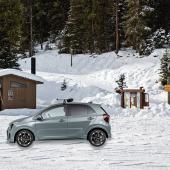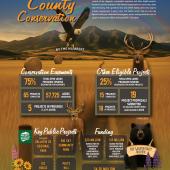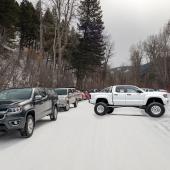Solemn Symbols
The American Legion’s Fatality Marker program.
Après: it’s hard to picture skiing without it. For some, it’s the best part of the day, while for others it’s a social obligation, a custom, more habit than anything. While post-turns happy hours are largely an afterthought, its important to consider the consequences of going too hard after going hard all day. That’s what the American Legion hopes to remind folks with the white crosses they stake along the road, which are especially prevalent along Hwy. 191 toward Big Sky.
“Montana is often described as a small town with long streets,” says Greg Harbac of Bozeman’s American Legion post. “Those long streets periodically lead to tragedy that precedes or follows one of our attempts to get outdoors to enjoy our state.”
Every winter, thousands of skiers drive through Gallatin Canyon, many noting the crosses without giving them much thought. They’d be unhappy to know that each cross represents a death, making Hwy. 191 through Gallatin Canyon the most perilous stretch of road in Montana and one of the deadliest in the Lower 48.
Now, not all vehicle-related deaths are a result of impaired driving, and it’s unclear how many skiers are involved in the accidents. But one thing is clear: Hwy. 191 is dangerous, especially in the winter, and adding alcohol to the equation after a long day of skiing isn’t wise.
Bridger Canyon has its fair share of white crosses, as well, so it’s not just inexperienced tourists who are perishing. According to Harbac, Norris Rd. has an even higher concentration of white crosses per mile than 191, and there are 125 within 20 miles of Bozeman alone.
Harbac explains that the crosses are to remind people of the dangers of road, not to discourage enjoyment of our outdoor opportunities. “Put down the phone, avoid the use of drugs and alcohol that affect your ability to concentrate on the rules of the road and respond to changing situations, stay in your lane, be mindful of the reason for solid yellow and white lines, and use your turn signals like your life depends on it—because it does, every time,” he cautions.
So, the next time you’re on your way to the mountain, take note of the crosses. Consider what they represent and what you can do to avoid a similar fate. Maybe it’s one less beer, maybe it’s not passing when the roads are slick or the visibility is poor, maybe it’s leaving your phone in the center console. Maybe it’s all three. The text can wait, getting home 30 seconds faster isn’t worth your life, and drinking less isn’t just about sacrificing your good time.


